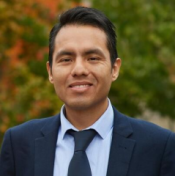Overdose crisis involves more than opioids, says ASU social work professor

Stock image by freestocks for Unsplash
News coverage about the escalating number of drug overdoses in the United States can lead many to conclude that so long as you’re not overdosing yourself, the crisis doesn’t really affect you.
Wrong, says Manuel Cano.
Cano is an assistant professor in the School of Social Work who for eight years was a substance use clinician. He studies trends and disparities in deaths from drug overdoses, especially in Hispanic populations.
Cano will teach a spring 2025 session B course, SWU 394: The Drug Overdose Crisis in the United States, that is open to any student, regardless of major, and details what everyone should know.
“It’s a tragedy that affects everyone,” Cano said. “A study a year ago found 40% of Americans know someone who has been directly affected by an overdose. That’s a tragic statistic. In this class, we come from a public health perspective as well as understand social work’s values of respect for the person.”
One thing many people miss when talking about overdoses: It’s not just about opioids.
“We tend to think about opioids, but it’s more than opioids. There are other drugs people are dying of, and have for a long, long time,” he said. “It’s a difficult situation and has been for a while.”
One example of a drug increasingly being overdosed is xylazine, an anesthetic for animals that has begun to be mixed into drugs sold on the streets, particularly in the northeastern U.S., Cano said.
“This is an ever-changing, ever-evolving problem. As drug trafficking organizations adapt and become more efficient, unfortunately they become very sophisticated at what they do, and they somehow know how to target their people,” he said.
The overdose crisis affects populations unequally, Cano said, depending on factors such as race, educational attainment, rural vs. urban living and access to services.
In addition to policy-level considerations, the course will also discuss individual and community interventions that seek to stop overdoses or reduce the number of deaths they cause, including ethical considerations.
“What do you do if you encounter someone in downtown Phoenix who’s unconscious and it appears they may have overdosed?” Cano asked. “These are things people don’t necessarily think about.”
Cano compared training on responding to an overdose to learning how to administer cardiopulmonary resuscitation. They’re both useful skills that hopefully will never be needed.
People who overdose often suffer from social stigmas and stereotypes, he said. One commonly held, but often mistaken, belief is that most people who overdose don’t want to live, or they don’t appreciate life.
“The explanation is more complicated than that,” Cano said. “There may be a history of unaddressed pain, physical or emotional, difficult childhood experiences, a lack of employable skills or lack of safe housing.”
While treatment can be readily available, it also often reaches only a small fraction of those who need it, he said. “People make judgments, and patients are afraid of being scolded. It’s something to consider.”
The course aims to break through many of those common misconceptions.
Students will evaluate trends in the overdose crisis and how they often differ locally, nationally and globally. Class discussions also will involve history, as overdose issues have negatively affected some members of demographic groups more than others.
“We want to have students make sense of why that is,” Cano said.
The School of Social Work is part of the Watts College of Public Service and Community Solutions.
More Local, national and global affairs

First-ever Taiwan Symposium at Thunderbird celebrates business, cultural connections
The investment by TSMC and other Taiwanese corporations in Arizona will reap dividends not only in thousands of new jobs but also in strengthened cultural connections and new methods of…

Study shows that trust drives successful market economies — but not in the way you may think
From fueling our cars to fulfilling daily coffee habits, the average U.S. cardholder makes 251 credit card transactions per year, according to Capital One.Each of these transactions are built…

Higher education key to US competitiveness, security
ASU President Michael Crow’s notion of universities as public service institutions — places that serve society in practical and meaningful ways to solve pressing issues of importance to the country…


